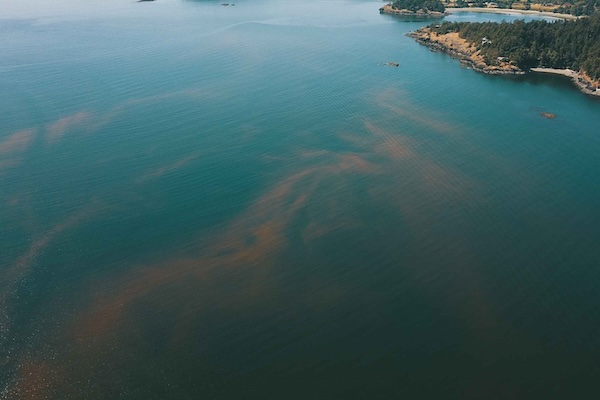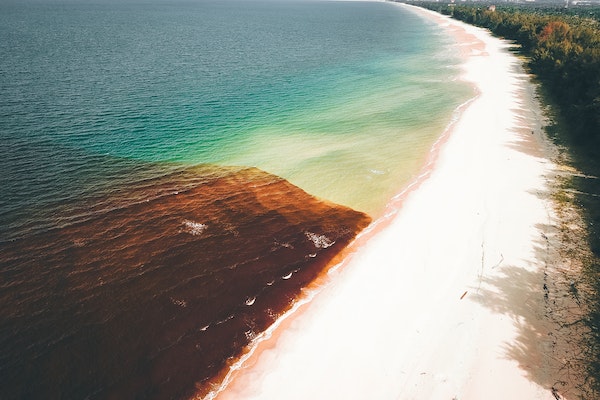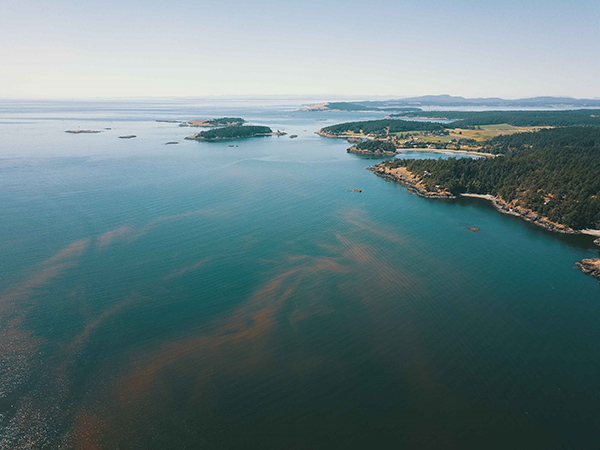New UK-wide training to help aquaculture sector tackle harmful algal blooms with standard protocols and early warnings

Lantra, the training organization for the United Kingdom’s land-based and environmental sectors, has expanded its role in aquaculture by leading a new national initiative focused on harmful algal blooms (HABs). Funded through the Department for Environment, Food & Rural Affairs’ UK Seafood Fund, the program will help seafood producers deal with these blooms, which are becoming more common as water temperatures rise. The outbreaks can cause serious health problems for farmed fish and major challenges for fish farmers.
“With decades of experience providing training and qualifications for people at all stages of their careers, Lantra is very well placed to take on the next stage of the HABs initiative,” said Jillian Couto-Phoenix, head of aquaculture at Lantra. “Employers in the aquaculture sector will already be familiar with the services Lantra provides, so we see this as a natural addition to our aquaculture offering.”
The training will help aquaculture workers follow standard procedures for detecting and reporting harmful algal blooms—guidelines first developed through the Scottish Government’s Farmed Fish Health Framework. The aim is to create a more consistent, UK-wide reporting system that supports early-warning tools and predictive models.
Can machine learning using climatic pattern data help predict harmful algal blooms earlier?
Set to launch this spring, the free course is expected to reach around 1,800 professionals and students. Developed with the Sustainable Aquaculture Innovation Centre (SAIC) and the Scottish Association for Marine Science (SAMS), it covers sampling methods, species identification, risk assessment, and data recording, and includes tools like a risk calculator and comprehensive handbook.
“The user-friendly, introductory-level course is designed to be accessible and understandable, enabling the sector to work together on tackling the challenges associated with HABs,” said Couto-Phoenix. “Timing is key, and we’ll be rolling out the training ahead of the summer season, which is when HABs can be most prevalent.”
The course was developed with input from producers, researchers, and regulators, including Salmon Scotland, Mowi, Scottish Sea Farms, Loch Duart, Bakkafrost, SAMS Enterprise and the RSPCA.
“The connection between HABs and climate change means that, unfortunately, they are only likely to become more of a concern in years to come so it is important to have every technician, operator and manager working under the same operating procedures,” said Couto-Phoenix. “In the future, we can foresee creating additional modules, covering, for example, blooms of micro jellyfish, which can lead to similar concerns for fish health and welfare.”
To register interest in this course, fill out this form.
Now that you've reached the end of the article ...
… please consider supporting GSA’s mission to advance responsible seafood practices through education, advocacy and third-party assurances. The Advocate aims to document the evolution of responsible seafood practices and share the expansive knowledge of our vast network of contributors.
By becoming a Global Seafood Alliance member, you’re ensuring that all of the pre-competitive work we do through member benefits, resources and events can continue. Individual membership costs just $50 a year.
Not a GSA member? Join us.
Author
Tagged With
Related Posts

Intelligence
Researchers uncover giant enzymes in marine algae responsible for deadly fish-killing toxins
A new study shows that massive enzymes in marine algae that produce neurotoxins cause mass fish deaths during harmful algal blooms.

Intelligence
Study finds no link between salmon farms and harmful algal blooms
Researchers conclude that farmed salmon biomass does not impact the abundance of harmful algal blooms in Scottish waters.

Intelligence
FAO issues ‘roadmap’ for early harmful algal bloom warning systems
Document provides guidance to implement or improve early warning systems for harmful algal blooms that threaten seafood and public health.

Health & Welfare
Grant to fund training for tackling harmful algal blooms
A new training program is being developed to help UK seafood producers detect and report harmful algal blooms in open coastal waters.



